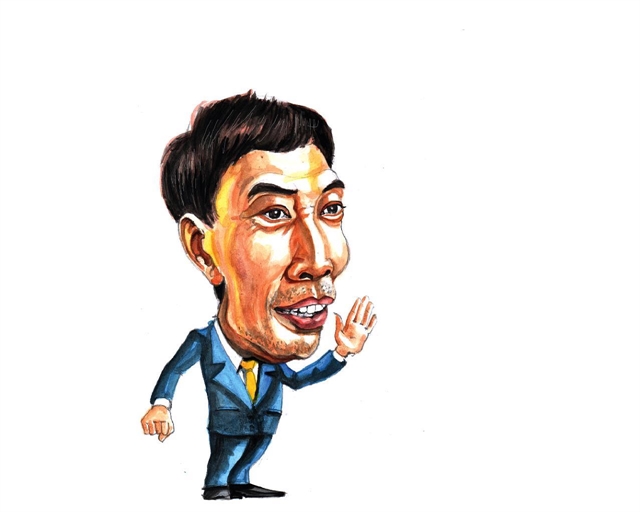The 13th National Congress of the Communist Party of Viet Nam has adopted a socio-economic development strategy for the next decade, in which Viet Nam sets its sights on becoming a developed and upper-middle income country with modern industry by 2030.

The 13th National Congress of the Communist Party of Viet Nam has adopted a socio-economic development strategy for the next decade, in which Viet Nam sets its sights on becoming a developed and upper-middle income country with modern industry by 2030.
Viet Nam is now standing at a historic turning point in posting breakthroughs in economic development. Despite the new strain of coronavirus still raging in the world, it has been hailed as a bright star in Asia and a pandemic success story for the world, which lays a solid foundation for the country’s aspirations over the next decade.
The 10-year strategy outlines ambitious goals, including average GDP growth of 7 per cent per year by 2030 and GDP per capita of around US$7,500, while annual workplace productivity is expected to grow 6.5 per cent during the period.
The manufacturing and processing industry and the digital economy will each account for 30 per cent of GDP. Additionally, the strategy states that public debt shall remain below 60 per cent of GDP while development investment shall reach 33-35 per cent of GDP.
Viet Nam’s success story began with its “Doi moi” (Renewal) process of important economic reforms, initiated in 1986. Thirty-five years later, it has shrugged off its closed, centrally planned economy and become a market-oriented and deeply integrated economy, transforming from a low-income country to a middle-income one.
According to the UN Sustainable Development Report 2020, Viet Nam is the only Southeast Asian country to achieve the five UN action targets, including measures to reduce CO2 emissions, promote renewable energy, and improve resilience to climate change.
The achievements of the previous reforms, though being an important fulcrum, are not enough to ensure Viet Nam’s future development. Opportunities and challenges are interwoven in a rising, complex world that require the country push the renewal process to new heights.
More than ever, the current state of the globe mirrors a volatile, uncertain, complex, and ambiguous (VUCA) world.
COVID-19 has devastated global health and the global economy and fast-tracked pressing social issues such as employment and wages, while bringing both positive and negative changes to megatrends in the world. The pandemic has hastened demand for a green lifestyle, sustainable development, and digital transformation, while also exacerbating ultranationalism, geopolitical competition, and protectionism, which increase uncertainty and risk.
Braving the challenges, Viet Nam’s aspirations to thrive -- not only “catching up” but also “moving forward” and even in some measurements “going beyond” the times -- are backed and fuelled in the new context.
The new development strategy is seen to be a well-timed response to changes in the world while remaining in line with Viet Nam’s long-term development strategy.
It pointed out areas that require breakthrough reforms that notably include: renovating the economy and developing the private sector; building capacity for national innovation, enhancing the economic efficiency of urbanisation and territorial development, promoting environmentally-sustainable development and climate change resilience, ensuring equity and promoting social inclusion, and building efficient State and modern institutions.
One of Viet Nam’s major development pillars is rapid and sustainable development based on science and technology, innovation, and digital transformation.
The transition to the high-tech era and the “digital” era is occurring at high speed. The digital economy possesses many fundamental differences from the traditional “real” economy, in terms of resources, characteristics, and ways of interacting and operating. Impacts, and even conflict, are unavoidable between the two mechanisms of economic operation.
The central role of this transformation is entrepreneurship and innovation, in which the development of the country cannot be sustainable without the forces and maturity of Vietnamese enterprises, especially the private sector.
Additionally, the demand for reform towards a modern, socialist-oriented market economy and integration are also included in the strategy, noted as prerequisites for promoting sustainable development and increasing the country’s adaptive capacity.
The country’s development strategy over the next decade has three focuses: institutional reform, improvements to science and human resources, and infrastructure development. The key point now is implementation.
First, we need to focus resources on priority issues and plan implementation in the most effective way.
Second, in addition to enhancing State efficiency, it is essential to build an effective monitoring mechanism whose operation must be relatively independent, transparent, and free from stakeholder pressure.
Third, strengthening the national response mechanism and economic resilience is crucial in a VUCA world.
And lastly, with rapid digital transformation, a desire for creativity must be high on the agenda. Not only enterprises need innovation, but also the State. In this context, I want to emphasise the requirement for a legitimate State based on merits and motivation. This holds important meaning, because besides being creative in policy making, the implementation of strategic breakthroughs requires a high level of creativity and responsibility.
For a human resources breakthrough, priority should be placed on new skills and especially university reform and talent acquisition mechanisms.
At this point, we are talking a lot about a sandbox for start-ups. When new business models and innovations have not been clearly envisioned and there are no regulatory mechanisms and frameworks, the implementation of a sandbox will motivate start-ups to overcome current regulations to innovate. This is also what civil servants need, a sandbox to promote responsibility and creativity in policy development and implementation.
*Vo Tri Thanh is a senior economist at the Central Institute for Economic Management (CIEM) and a member of the National Financial and Monetary Policy Advisory Council. The holder of a doctorate in economics from the Australian National University, Thanh mainly undertakes research and provides consultation on issues related to macroeconomic policies, trade liberalisation and international economic integration. Other areas of interest include institutional reforms and financial systems.





